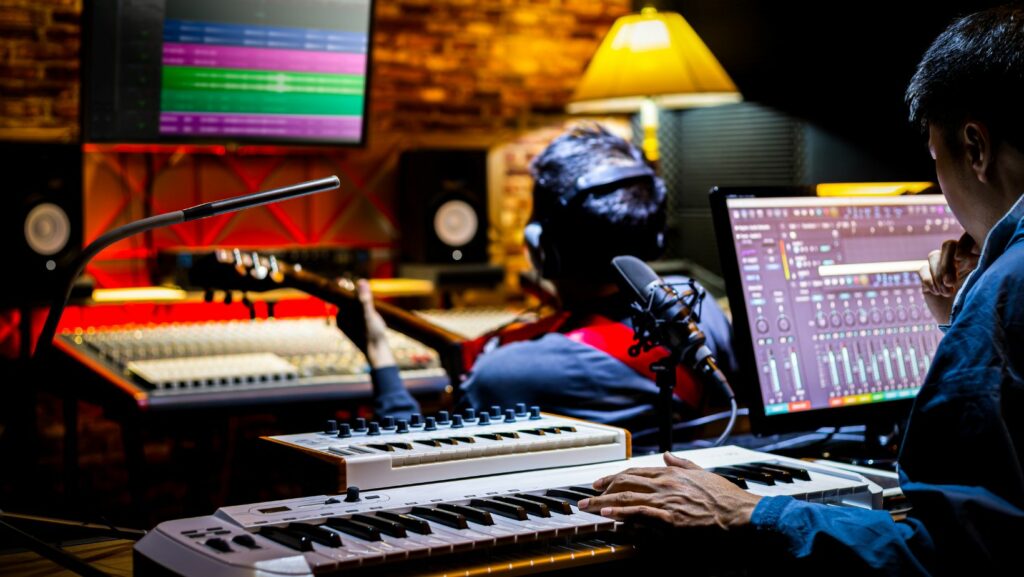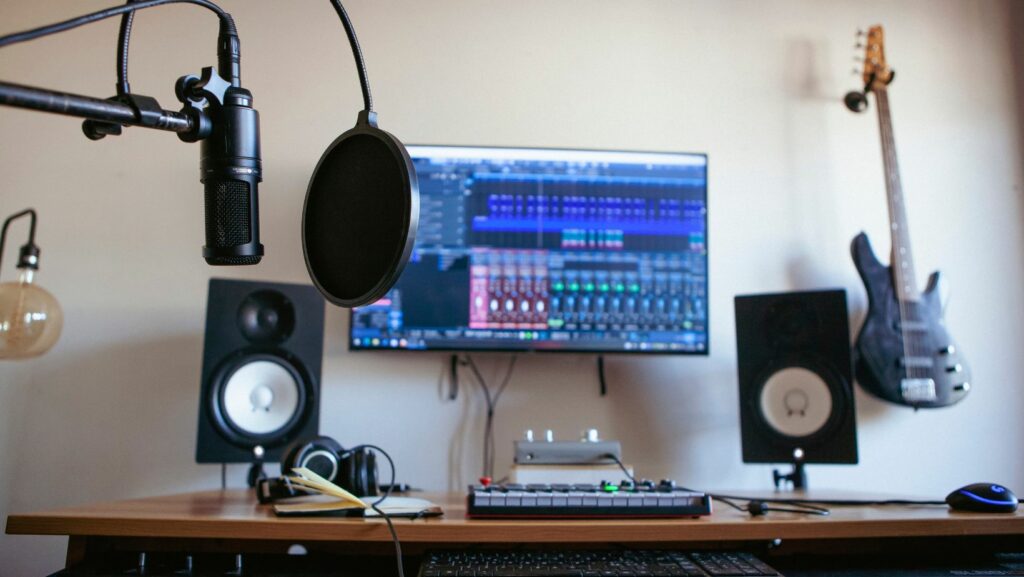Music Producer Education Requirements
As an expert in the field, I can shed light on music producer education requirements. To pursue a career as a music producer, one must first understand the necessary qualifications and skills needed to thrive in this competitive industry.

In today’s digital age, aspiring music producer education requirements have access to a wealth of resources and educational opportunities that can help them hone their craft. From online courses to formal degrees in music production, there are various paths one can take to acquire the knowledge and expertise required for success.
Whether it’s mastering audio engineering techniques or learning how to navigate industry-standard software, music producer education requirements staying up-to-date with the latest trends and technologies is essential for any aspiring music producer. Embracing continuous learning and hands-on experience are key factors that can set individuals apart in this dynamic and ever-evolving field.
Understanding the Role of a Music Producer
When it comes to grasping the essence of what a music producer does, it’s essential to recognize that they are the architects behind the scenes who shape and mold a song into its final form. A music producer is not just someone who hits record; they are instrumental in overseeing the entire creative process, from pre-production to post-production.

One of the primary responsibilities of a music producer is to collaborate closely with artists to understand their vision and bring it to life through sound. This involves selecting appropriate studio musicians, guiding vocal performances, and making critical decisions regarding arrangements and instrumentation.
Moreover, an adept music producer wears multiple hats – they act as part mentor, part technician, and part visionary. They must possess a keen ear for detail, a deep understanding of musical trends, and strong leadership skills to navigate the complexities of the industry successfully.
In addition to their creative input, music producers also play a pivotal role in managing budgets, scheduling studio time, and negotiating contracts. Their ability to juggle artistic integrity with practical realities is what sets them apart as indispensable collaborators in the world of music production.
Formal Education vs. Self-Taught Paths
When considering a career as a music producer, the path you choose for your education can significantly impact your future opportunities and success in the industry. Let’s delve into the comparison between formal education and self-taught paths for aspiring music producers.
Advantages of Formal Education:
- Structured Learning: Enrolling in a formal music production program provides a structured curriculum with courses covering essential topics such as audio engineering, music theory, and production techniques.
- Access to Resources: Educational institutions often offer access to state-of-the-art equipment, recording studios, and software that may be costly to acquire independently.
- Networking Opportunities: Formal education facilitates networking with industry professionals, fellow students, and alumni, potentially opening doors to internships or job placements.

Advantages of Self-Taught Paths:
- Flexibility: Self-taught individuals have the freedom to learn at their own pace and focus on specific areas of interest within music production.
- Cost-Effective: Avoiding tuition fees associated with formal education can be advantageous for those on a budget or looking to invest in equipment or software instead.
- Real-world Experience: Self-taught producers often gain hands-on experience more quickly by working on actual projects outside of an academic setting.
As I reflect on my own journey as a music producer, I acknowledge the merits of both formal education and self-teaching. Deciding between these paths requires careful consideration of personal learning style, financial resources, career goals, and time commitment. Ultimately, whether through structured classes or independent exploration, passion for music and dedication to honing one’s craft remain paramount in achieving success in this competitive field.
So, we’ve delved into the world of music producer education requirements. It’s clear that pursuing a career as a music producer involves a blend of technical skills, creativity, and industry knowledge. Whether you choose to follow a formal education path or opt for self-learning through online resources and hands-on experience, the key is to continuously hone your craft.
In this competitive industry, staying up-to-date with the latest technologies and trends is crucial. Networking with fellow producers, artists, and industry professionals can open doors to new opportunities and collaborations. Remember, success in music production often comes down to a combination of talent, hard work, perseverance, and a bit of luck.
